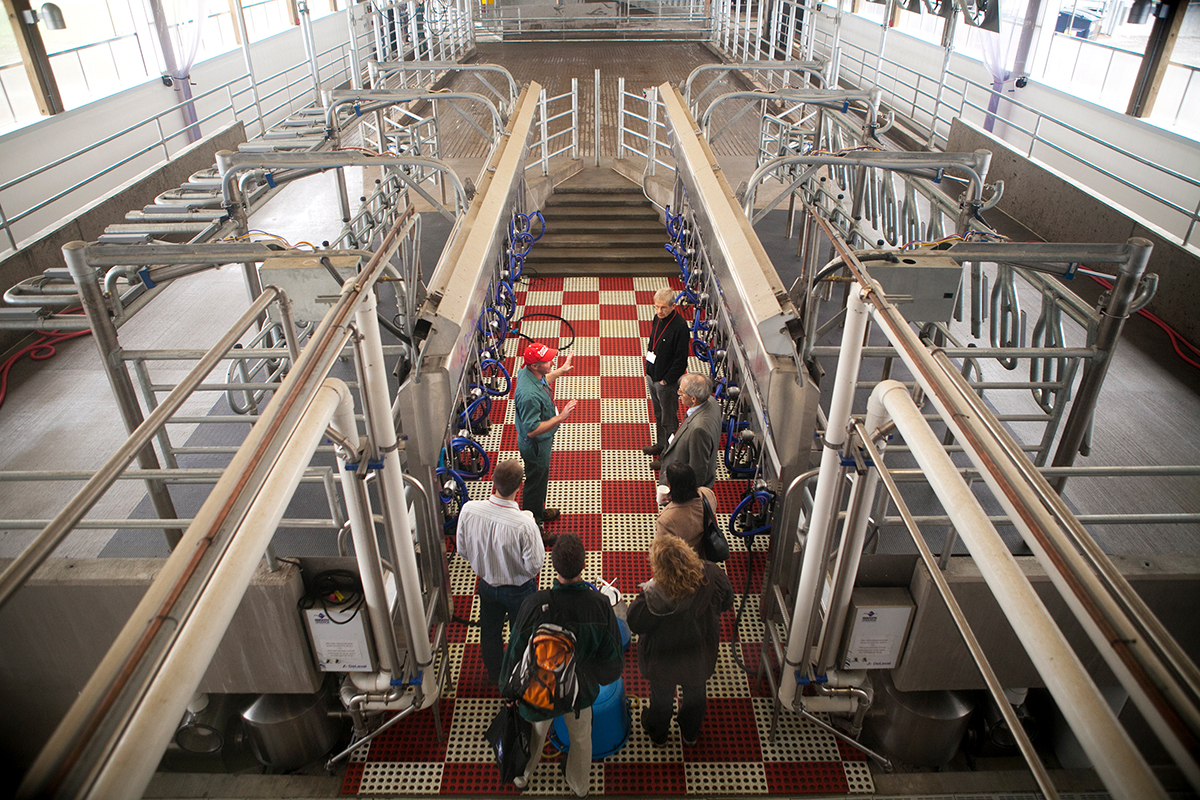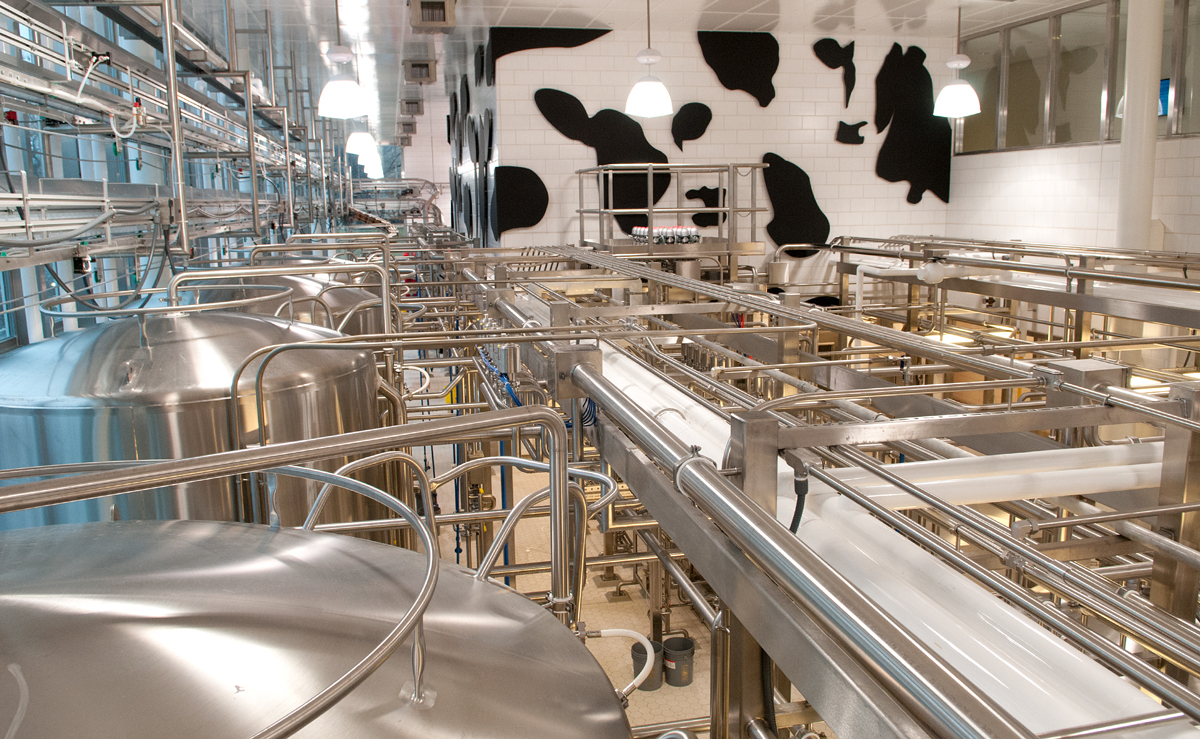Cornell to team with IBM to protect global milk supply

Cornell and IBM announced a joint research project June 23 that will use genetic sequencing and big-data analyses to help keep the global milk supply safe.
Foodborne disease outbreaks and food spoilage are an ongoing global dilemma. With the application of metagenomics and analytics to food safety, the partnership aims to minimize the chance that hazardous food will reach consumers, prevent food fraud and reduce spoilage.
“As a global leader in food safety and dairy research, we are committed to using our multidisciplinary expertise to secure the world’s food supply against harmful microbial contamination,” said Kathryn J. Boor ‘80, the Ronald P. Lynch Dean of the College of Agriculture and Life Sciences. “Bringing Cornell into a private-public partnership with IBM, a world leader in technology and innovation, has the potential to deliver transformative research in the area of food safety and health.”
Researchers will collect genetic data from the microbiome of raw milk samples in a “real-world” scenario at a Cornell farm and the Cornell Dairy Processing Plant in Ithaca. Cornell’s resources are unique in that they represent the full dairy supply chain – from farm to processing to consumer. This initial data collection will form a raw-milk baseline and be used to expand IBM’s Consortium for Sequencing the Food Supply Chain bioinformatic analytical tools.
“As nature’s most perfect food, milk is an excellent model for studying the genetics of food,” said Martin Wiedmann, the Gellert Family Professor in Food Safety and Cornell Institute for Food Systems faculty fellow. “As a leader in genomics research, the Department of Food Science expects this research collaboration with IBM will lead to exciting opportunities to apply findings to multiple food products in locations worldwide.”
By sequencing and analyzing the genetic code of food microbiomes, Cornell and IBM will create tools that detect anomalies in raw milk that represent food safety hazards and possible fraud. Researchers will also conduct several studies comparing the baseline data of raw milk with known anomalies to create models that can be used for additional studies.

“Characterizing what is ‘normal’ for a food ingredient can better allow the observation of when something goes awry,” said Geraud Dubois, director of Consortium for Sequencing the Food Supply Chain, IBM Research – Almaden. “Detecting unknown anomalies is a challenge in food safety, and serious repercussions may arise due to contaminants that may never have been seen in the food supply chain before.”
The consortium was officially launched in January 2015 by IBM Research and Mars Inc. Bio-Rad Laboratories, Inc. a global provider of life science research and clinical diagnostic products, joined the consortium in 2016. With this new dairy project, Cornell has become the first academic institution to join the consortium. It is the largest-ever metagenomics study to categorize and understand microorganisms and the factors that influence their activity in a normal, safe environment.
This work could be extended into the larger context of the food supply chain – from farm to fork – and, using artificial intelligence and machine learning, lead to new insights into how microorganisms interact within a particular environment.
“We are thrilled to partner with Cornell to find new ways to keep our food supply safe before fraud or contamination hits by developing advanced algorithms, applying machine learning and mathematical modeling to sequence data,” said Jeff Welser, vice president and director, IBM Research – Almaden. “Safe food is the first step toward human health. We’re extremely optimistic that with Cornell’s involvement in the consortium we will make a huge difference in improving not only food safety, but our overall health as well.”
Media Contact
Get Cornell news delivered right to your inbox.
Subscribe